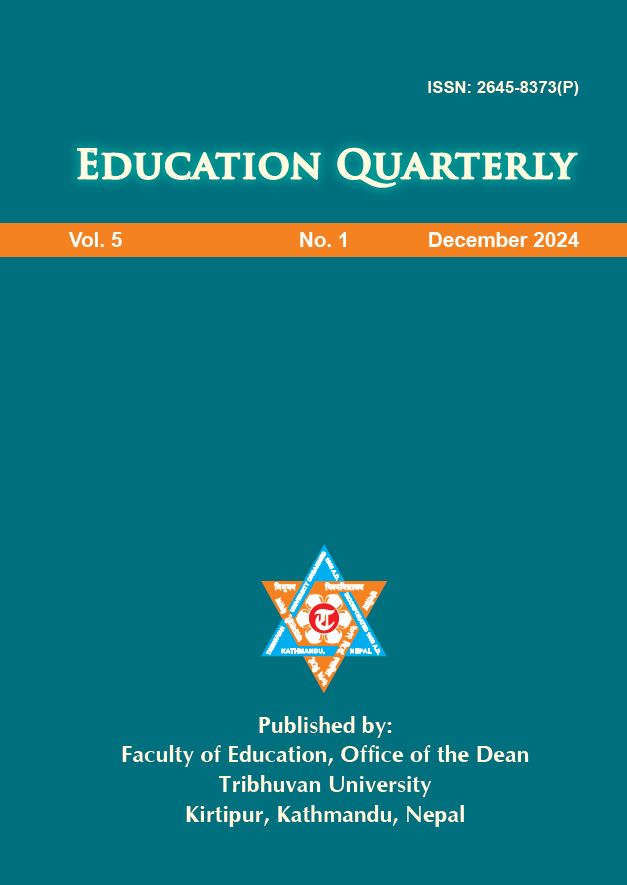Knowledge, Attitude and Practices of Masters Level Students on the COVID-19 Pandemic
DOI:
https://doi.org/10.3126/jeqtu.v5i1.76745Keywords:
Knowledge, Attitude, Practice, Covid-19 Pandemic, Higher EducationAbstract
Research on knowledge, attitude, and practices (KAP) is crucial for disease control. Despite extensive studies on COVID-19 among healthcare workers, adults, and migrants, it remains under-researched at higher academic levels in Nepal. This cross-sectional study uses multistage sampling to ascertain the KAP of 315 Masters level students during the second wave of the COVID-19 pandemic at the University Campus in Kirtipur of Nepal. Data, collected through self-administered questionnaires were analyzed using summative analysis, composite indices, and multiple regression models. The study found high mean values (x̄ 3.70 to x̄ 4.85) across all KAP variables, indicating strong knowledge, positive attitudes and appropriate COVID-19 preventive behaviors among university
students. These outcomes were significantly influenced by factors such as religion and specialization subjects. However, KAP indices were not generally distributed among students from various faculties and central departments. The findings suggest potential policy implications for the relevant departments.




